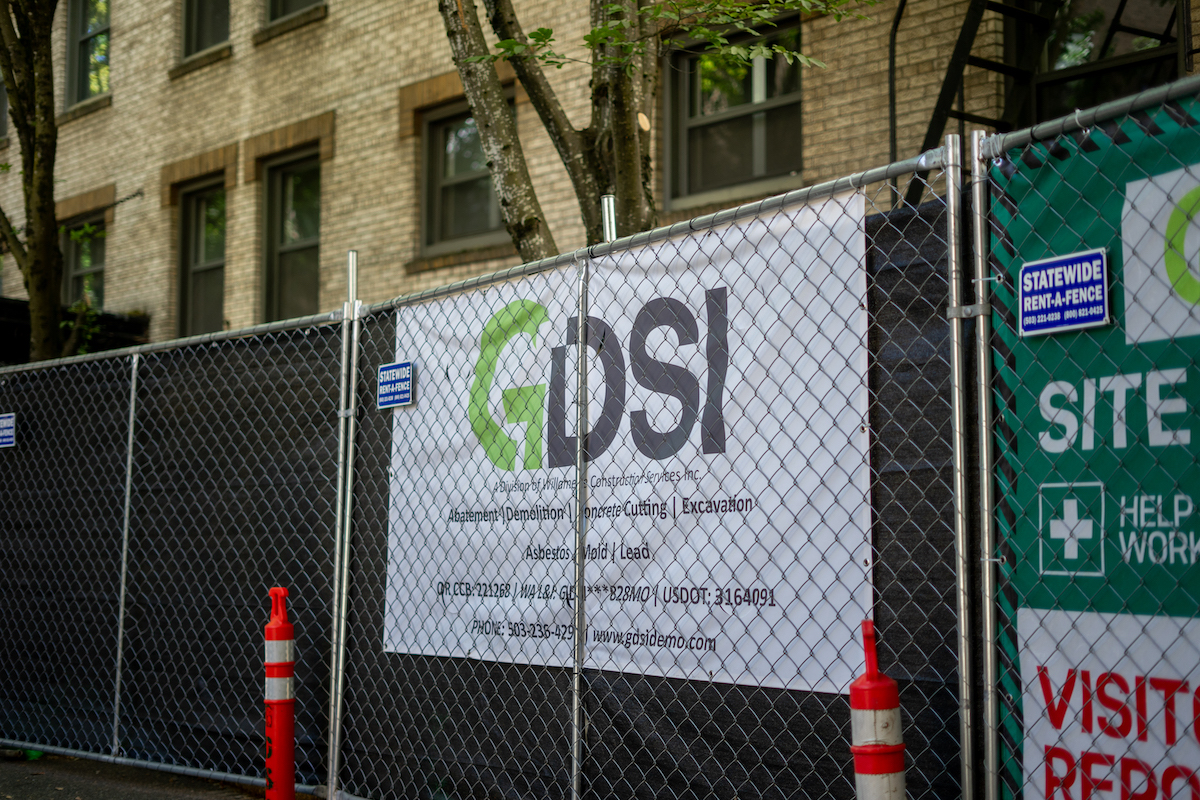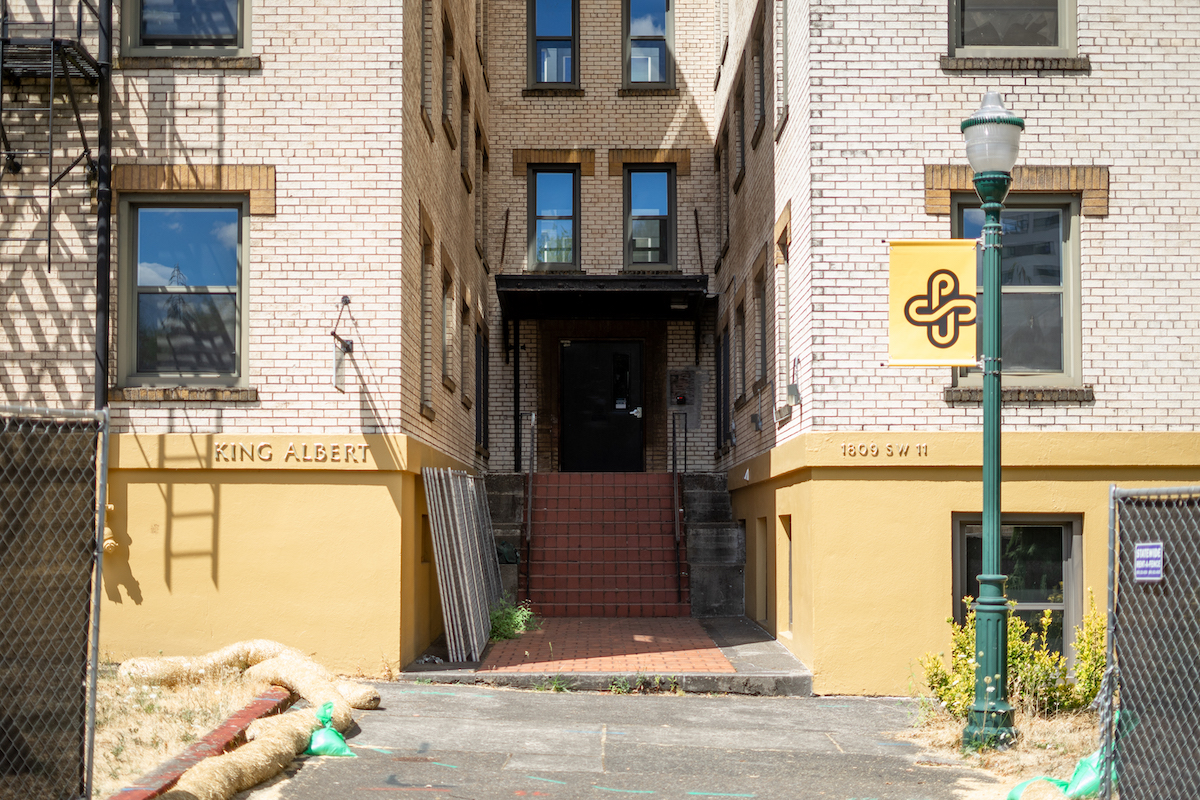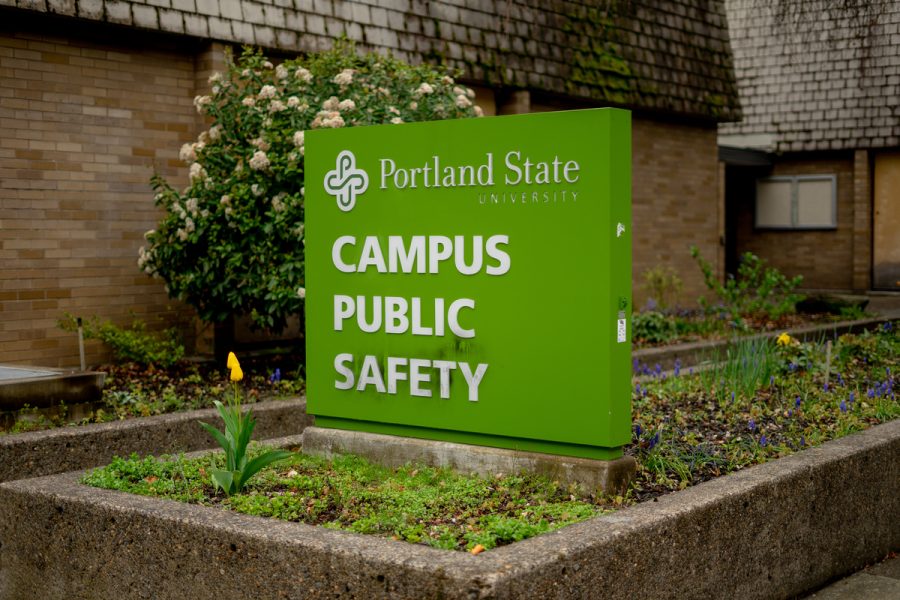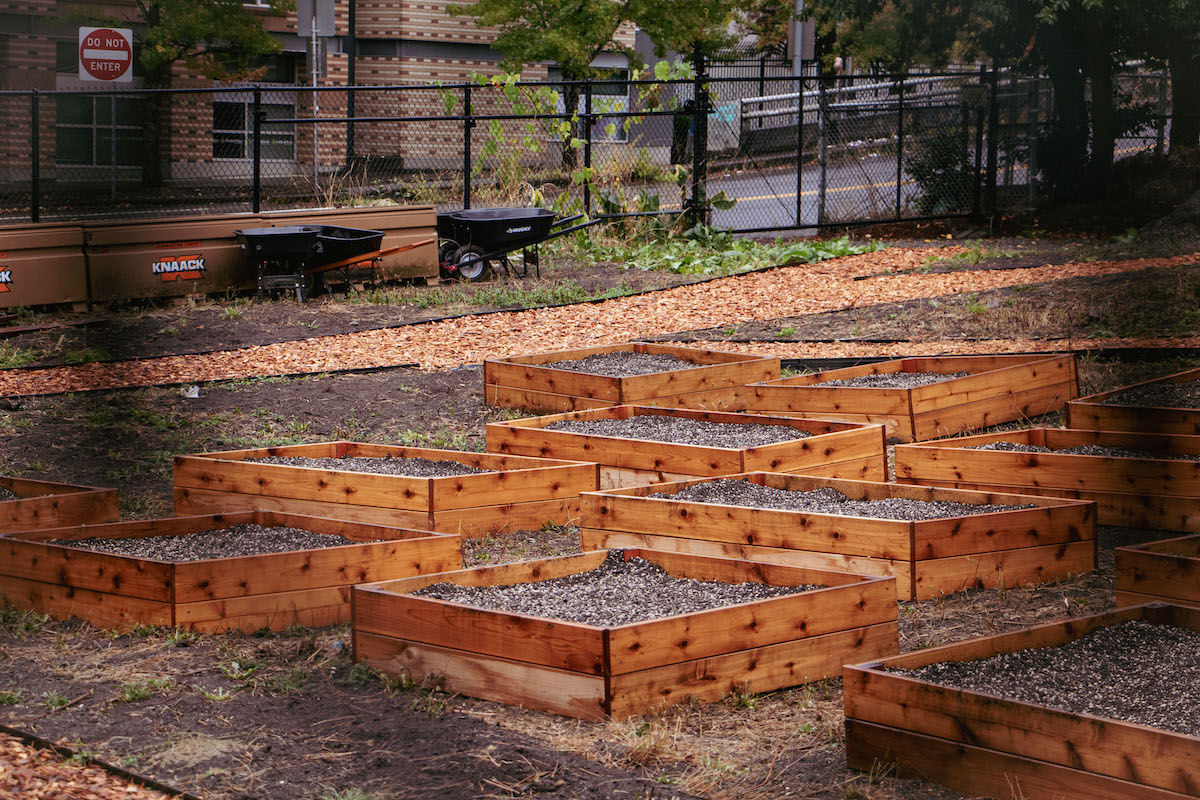The King Albert residence hall—located on the western edge of the Portland State campus at 1809 SW 11th Avenue—is set to be demolished before the start of the fall 2023 term.
The King Albert building—built in 1918 and owned by PSU since 1969—will be demolished later this year, along with Parkway Manor and Harder House—the building for the Systems Science Program. The demolition of King Albert is set to begin as early as next week and will last approximately eight to 10 weeks.
Due to King Albert’s centralized location on campus, PSU is prioritizing its demolition to ensure as little disruption to campus life as possible. PSU is still seeking input from students on the future use of the 8,524 square-foot space after demolition.
On Aug. 7, University Housing & Residence Life (UHRL) emailed campus residents urging them to sign up for one of three focus groups regarding the potential outdoor space the demolition of King Albert will create.
UHRL could not be reached for comment at this time.
The Planning & Sustainability Office invited students to participate in on-campus focus group sessions on Aug. 10, 22 and 30, or to submit an anonymous survey to offer feedback on the hopeful temporary use of the space.
“The need for significant, cost-prohibitive, renovations, a lack of accessibility, and lower demand for on-campus housing led to the decision to demolish the building,” the UHRL email stated. “We are especially interested to learn from nearby on-campus residents how this site might provide better resources and amenities. The focus groups will give students the opportunity to learn more about the project and contribute their expertise on how the space can be better used by our campus community in the near future.”
According to Jason Franklin—associate vice president of construction, planning and real estate at PSU—there are long-term plans to rebuild a residential building on the site of King Albert. However, those plans are at least five to 10 years away.
“We don’t have any plans right now to rebuild a housing building on that block, but eventually we will,” Franklin said. “In the meantime, we’re going to be landscaping that space in a way that can be used for residents and other folks at PSU. And so that’s what we’re looking for people’s input on.”
In early July, several fliers were anonymously posted throughout campus which outlined the potential health hazards of this demolition project, urging students and others in the campus community to demand the project’s delay. No one has claimed responsibility for these fliers as of yet.
“[King Albert’s] exterior is covered in lead paint, and perhaps its interior is as well,” the flier stated. “Lead paint chips, even household lead dust, can cause brain/nervous system damage to adults and children – how does PSU plan to demolish King Albert without putting Epler, Blumel, and Montgomery residents at risk?”
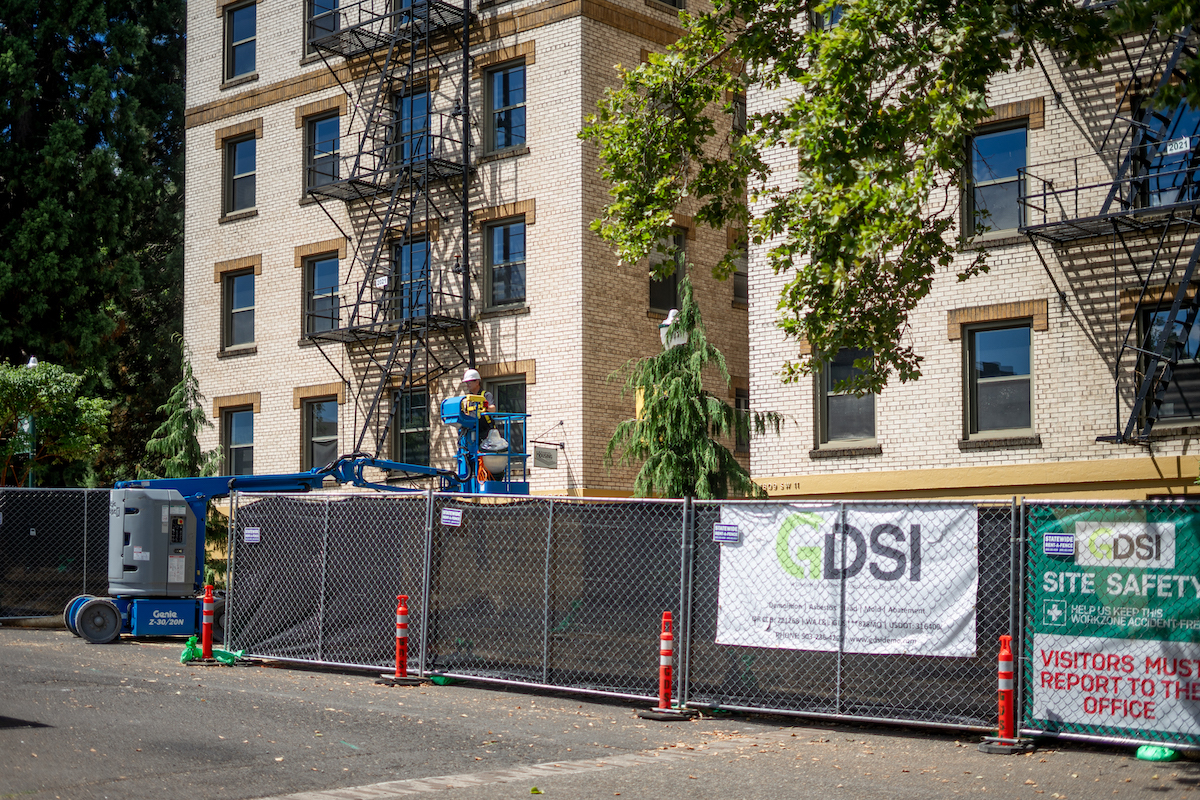
The flier also mentions that the demolition could endanger those who access Little Vikings Daycare, including staff, parents and children. They were not informed about the project until July, despite planning for demolition since May.
According to the flier—which cites research from the United States Environmental Protection Agency and the City of Philadelphia—even small amounts of lead exposure can harm child development.
However, in a letter shared with Little Vikings families, Little Vikings’ Director Marisol Barce explained how the Environmental Health & Safety office would provide interior air monitoring for nearby buildings to ensure the safety of residents and community members.
“PSU is ensuring representative air monitoring of the ambient air around the demolition site is captured throughout the project to ensure there are no exposures,” Barce’s letter stated.
Franklin is one of the people overseeing the demolition project. Despite what the flier states, Franklin explained how King Albert underwent an extensive abatement process, and all hazardous materials were removed, including lead and asbestos. The exterior of the building did not reveal any evidence of lead.
“We used to use asbestos in everything in the ‘60s and ‘70s,” Franklin explained. “In a lot of our older buildings, there’s a lot of asbestos. So we’re dealing with it all the time on campus, and we hire folks that know what they’re doing [and] that are licensed with the state to be abatement specialists.”
Franklin explained that the materials within the building undergo testing to detect hazardous materials. If hazardous materials like asbestos or lead are detected, those materials are then contained, bagged and taken to a hazardous waste disposal site in Hillsboro, Oregon.
“Our number one priority as we’re doing projects is the health and safety of both the workers who are doing the project, as well as the surrounding community,” Franklin said. “We’re always working closely with Environmental Health & Safety to make sure we’ve got safe workplaces.”
Franklin explained how—due to extensive safety requirements established by city and state law—people living close to the demolition site should not be overly concerned with potential health hazards.
“I think the biggest disturbance will be the noise and potential vibration,” Franklin said. “That sort of thing will go on for a couple of weeks.”
Jeffrey Rook—director of PSU Environmental Health & Safety—explained how the King Albert site would be methodically contained and controlled due to the many regulations in place for demolition projects.
“None of us want to expose ourselves or anyone else to hazards,” Rook said. “There are state, federal and local rules that they have to follow to bring that building down. GDSI will be using industry-standard wet methods, so they’ll actually suppress the area with water as they’re bringing down the building. This holds down any dust and debris from the building as well, so there’s just the standard dust from construction or demolition.”
PSU hired GDSI Abatement Services to perform asbestos and lead abatement. Rook said he is confident in GDSI following or exceeding industry standards while demolishing King Albert.
“We want to make sure that people do feel comfortable with the process that we’re going through on any of our buildings,” Rook said. “We don’t want to expose someone to a hazardous environment.”
